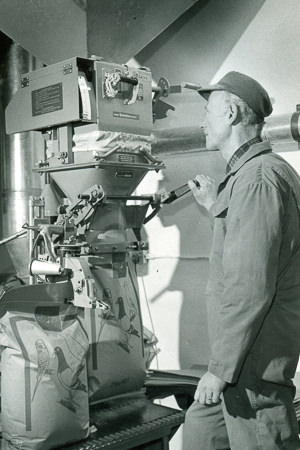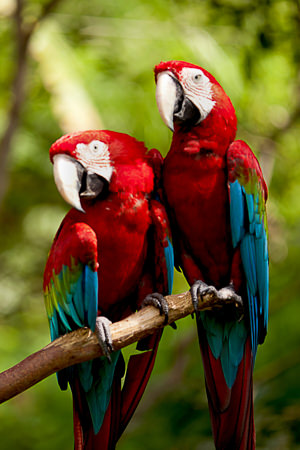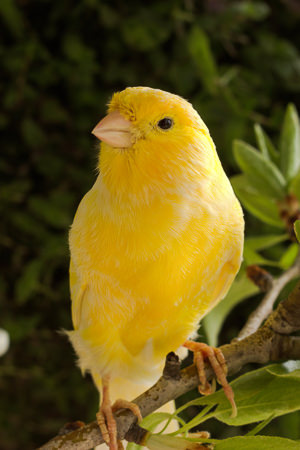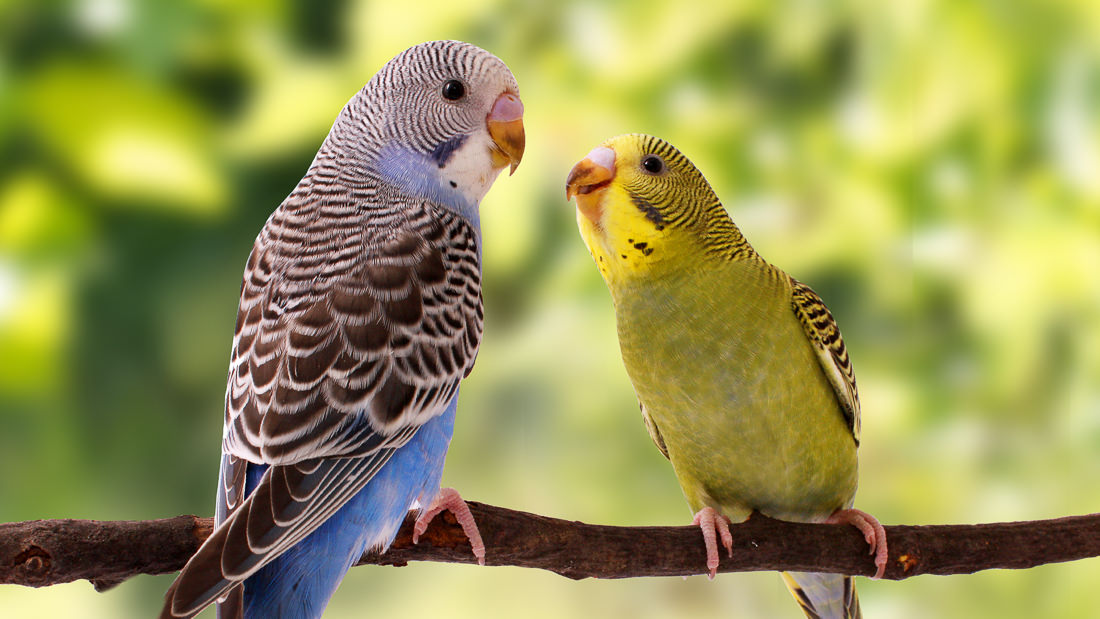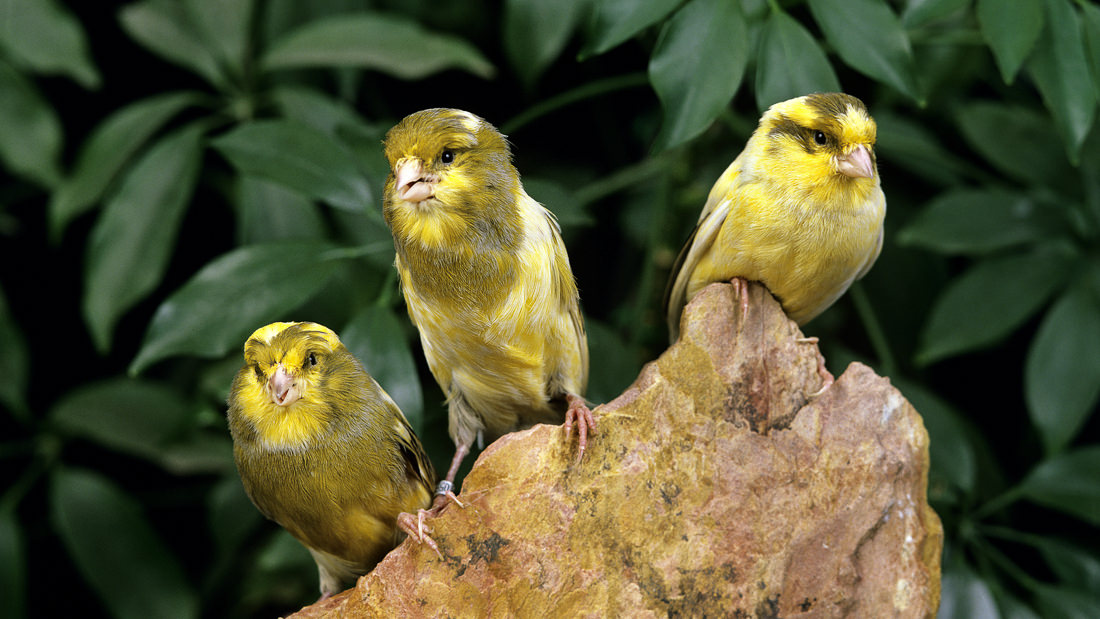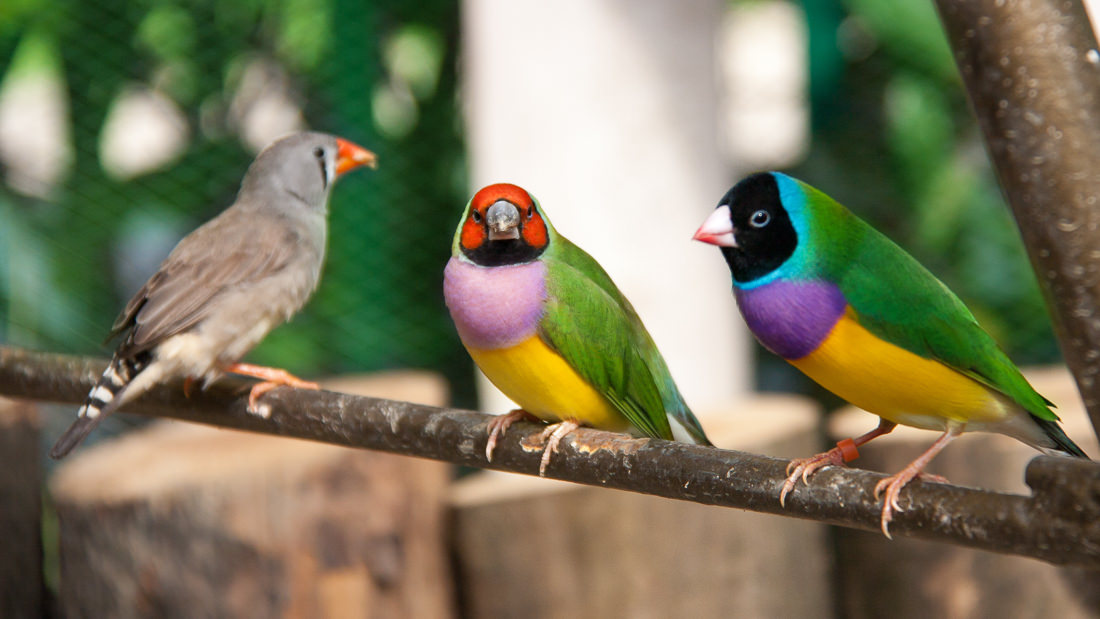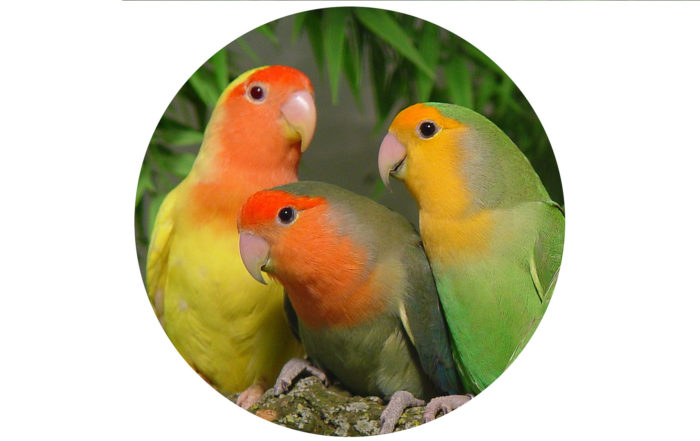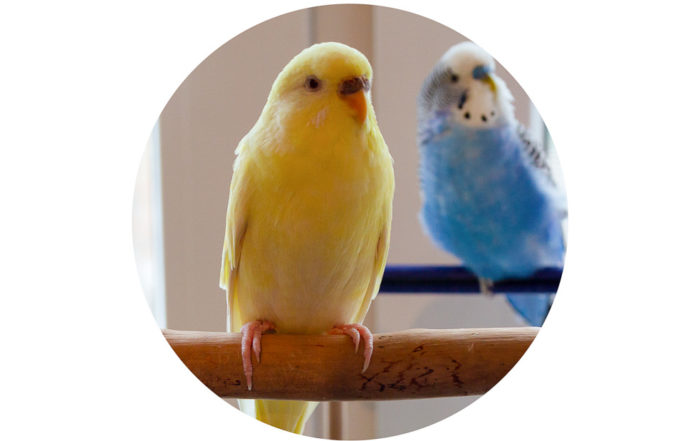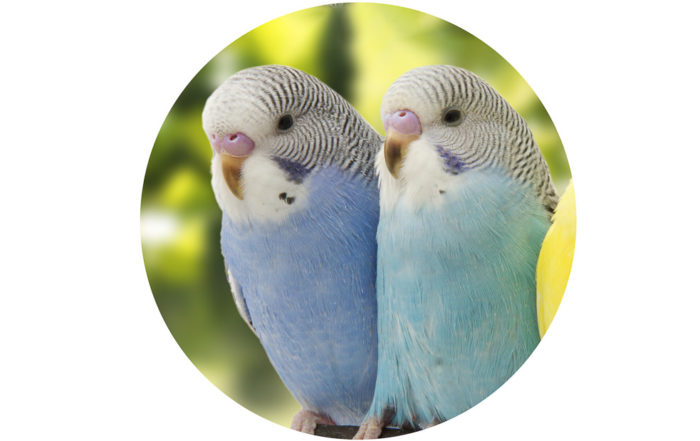The Ultimate Guide to Feeding Budgies, Canaries and Finches
Aviary birds are among the most beautiful and enchanting pets you can own. They are playful, affectionate and entertaining, and with the dazzling array of colours they display, it’s no wonder they’re so popular with bird lovers worldwide.
The title aviary birds covers many different species including Budgerigars, Finches, Canaries, Quail, and other smaller species of parrot such as Parakeets and Lovebirds.
But, as we discussed feeding and nutrition for Parakeets and Lovebirds in our post The Comprehensive Guide to Parrot Food and Nutrition, in this article, we’re going to concentrate on Budgerigars, Finches, Canaries.
The Importance of Good Nutrition
As with all pets, good nutrition is the cornerstone of good health when caring for Budgies, Finches, Canaries. And of course, it’s the owner’s responsibility to ensure they feed the best food they can afford.
Failing to do so can have serious consequences for your pet, but despite this, malnutrition remains a common source of health problems for both parrots and other aviary birds. So, as we pride ourselves on being ‘The Avian Nutritionists’, we’ve produced this guide to help you ensure your bird has a long, healthy, happy life.
Diet in the Wild
When considering the best food for your bird, it’s a good idea to take inspiration from understanding what Budgies, Finches and Canaries eat in the wild. This is because that’s the diet they’re most adapted to, and the one that best fulfils all their nutritional requirements. But what does that look like?
The answer to this depends on the time of year, because, like all wild creatures, birds have evolved to eat whatever is available in their environment. As a rule of thumb, however, birds in the wild will devour a variety of seeds, grass seeds, fruits, berries and leafy vegetation as part of their natural diet.
It is this variety of food that enables them to meet all of the nutritional requirements needed for good health, and it is this which we emulate when feeding companion birds.
Essential Nutrients for
Budgies, Canaries and Finches
We’ve mentioned the nutritional requirements of aviary birds several times already in this article, so before we move on to what to feed your bird, let’s take a closer look at the most important nutrients, starting with vitamins.
Vitamin A
Vitamin A is particularly important for birds because it promotes good digestion and increased protection against infection. A lack of vitamin A can lead to scaly feet, faded feathers, breathing difficulties and a lack of mucus production around the eyes, throat and nasal passages.
A chronic vitamin A deficiency is very serious and left unchecked can be fatal, so feeding foods rich in this nutrient is essential.
Vitamin B
Like vitamin A, B vitamins, particularly B6, B9 and B12, promote good digestion and a lack of these compounds makes it very difficult for your aviary bird to break down food and absorb the nutrients.
B vitamins are also involved in energy metabolism and as such, enable birds to cope with stress during times of high energy expenditure such as mating or feeding chicks.
Vitamin D3
Vitamin D3 aids the absorption of essential minerals such as calcium. Without it, a number of health problems can develop such as including low egg production, soft shells, soft or overgrown beaks, fractures, seizures, spayed legs and bent knees.
Like humans, birds rely on sunlight to make vitamin D. They secrete oil from their preen gland and while grooming, spread the oil all over their coat.
For birds in the wild, when the oil is exposed to sunlight it reacts to create vitamin D, fulfilling the bird’s needs. However, domesticated birds that are kept indoors don’t get enough sunlight to make sufficient levels of vitamin D so require a dietary supplement.
However, excess vitamin D is also associated with problems including kidney damage and retarded growth, so getting the balance right is essential with this particular nutrient.
Vitamin E
Vitamin E has powerful immune system-boosting properties and acts to combat stress, enabling Budgies, Canaries and Finches to fight off infections.
Vitamin E deficiency results in a weakening of the muscles which leads to a trembling or stumbling when the bird tries to walk. It can also result in reduced vision and in extreme cases, blindness.
Calcium
Calcium is critical for bone and beak structure, as well as the connective tissue and feather structure. It plays a role in mood too and is linked to anxiety.
Calcium deficiency can arise due to a lack of dietary calcium, or, as previously discussed, a lack of vitamin D.
Either way, ensuring your pet gets enough of both is the best way to avoid the ill health associated with a lack of this vitamin.
Protein
As with humans and all other animals, protein forms the building blocks of muscles and tissue in birds, meaning a deficiency in your pet’s diet can lead to reduced muscle tone.
If the situation persists, your bird will no longer be able to fly or carry out other physical activities, and this will lead to mental health issues such as boredom and depression.
The challenge here is that birds require a range of proteins and amino acids for full health, and they’re not all available from one source. So, variety is the key. It is essential that you feed a range of foods that will give your bird all of the protein types it requires.
So, What Do Budgies, Canaries and Finches Actually Eat, Then?
We’ve looked at what aviary birds eat in the wild and we’ve considered the nutrients that are most important for good health. But how does that translate into feeding companion birds at home?
Well, as we mentioned before, it is the variety of the birds’ diet that provides all of the nutrients they require, and we must seek to emulate that to ensure good health for our pets.
High Quality Base Blend
The first thing we recommend, is to choose a high-quality bird food that is specific to your species of bird.
All of our blends are made of human- grade ingredients, are designed to be nutritionally balanced and go through Our Unique Cleaning Process.
This makes life a lot easier for Budgie, Canary and Finch owners, because it takes the hassle and the guess work out of providing a nutritionally balanced diet.
We have dedicated blends for Budgies, Canaries and Finches, and you can find out more about them by checking out and downloading our feeding guides.
But just as we humans like to eat a variety of foods, so do birds. Along with the blend, we recommend supplementing with a range of fresh and tasty treats. Not only does this ensure your bird gets all of the nutrients it needs, the different textures, colours, smells and tastes provides great enrichment for aviary birds, ensuring they remain mentally stimulated throughout the day.
Fresh Food for Budgies, Canaries and Finches
Fruits
Budgies, Canaries and Finches all love fruit, especially tropical fruits. They will devour bananas, strawberries, apples, grapes, peaches, pears, raisins and melons with gusto, as well as cherries, nectarines and peaches as long as the stones are removed.
Fruit is packed with essential vitamins, fibre, minerals, and trace elements which will help keep your pet healthy for many years to come. With their different colours, textures and shapes, supplementing with them can help stave off boredom, too.
However, you do have to be careful when feeding fruit. Firstly, it contains a lot of sugar which can lead to health issues, and second some pips are toxic, particularly apple. So, if you do want to feed apple flesh to your birds, be sure to remove all traces of the pips.
Berries
Berries, like fruits, are another great Budgie, Canary and Finch food. They contain high levels of health-boosting vitamin C and K, which improve your bird’s immune system to help fight off infection.
However, also like fruit, berries contain a lot of sugar, so be careful not to feed too many as they made lead to obesity and other health issues.
Vegetables
Vegetables are a great treat for your bird as they contain lots of nutrients and fibre. The different textures and colours, smells and tastes, can also keep your bird busy for hours.
Good vegetables to feed Budgies, Canaries and Finches include fresh leaf veg such as lettuce, spinach, kale, and Swiss chard, as well as green beans, peppers, broccoli, carrots, cabbage, cauliflower, podded peas, sweetcorn, and sweet potato.
Some people say that you shouldn’t feed onions, mushrooms and garlic to Budgies, although others dismiss this, saying they have fed them with no ill effects. We would suggest avoiding these items and keeping to the list of known, safe and nutritious good vegetables listed above.
One final tip when it comes to vegetables is that if they’re not organic or haven’t grown them yourself, wash them. That way, you get rid of any harmful pesticides.
Beans, Legumes and Sprouts
Beans, legumes and sprouts are a great source of protein for your bird, which helps maintain healthy muscles and connective tissue. Birds love black beans, green beans, kidney beans, lentils, plain tofu and chickpeas, and all but kidney beans can be eaten raw.
Sprouting seeds, beans or pulses are also a good source of protein and due to biological changes brought about by sprouting, they also provide plenty of enzymes and vitamins so act as a real tonic. However, if you decide to feed them, ensure you do so in a timely fashion and do not leave them to sour, otherwise they can cause problems for your bird. Take a look at our Seed for Soaking mix.
Seeds and Nuts
We’ve already talked about using a high-quality blend as the primary food for your Budgie, Canary and Finch, so do you need to supplement with more seeds and nuts?
For seeds, the answer to that is probably no. However, you may want to supplement with complementary feeds that help you vary your bird’s diet and optimise health. For example, we produce a range of tonic seeds; Budgerigar Type 22, Cage Bird Condition Type 44 and Scottish Type 88. For nuts, which contain protein and lots of great minerals, including potassium, magnesium, calcium, zinc and copper, the answer is probably yes. Almonds, pistachios, peanuts, walnuts and pecans are great to feed as a treat or a training aid.
If you decide to do this, you must take into account the extra calories you’re introducing into your bird’s diet.
Cuttlefish Bone
Supplementing your bird’s diet with cuttlefish bone is a great way of ensuring they get enough calcium.
Cuttlefish bone is the internal shell of a cuttlefish and it is made up of around 85% calcium carbonate. It is a great source of calcium and minerals for your Budgie, Canary and Finch that not only helps keep bones healthy, but also ensures that the blood will clots properly.
Need for Water
We’ve talked at length about which foods you should feed your pet bird, but let’s not neglect the other essential part of their diet: water.
Water is involved in practically every process in a bird’s body, therefore it is essentially for their survival. In fact, aviary birds should drink around 5% of their body weight in water each day, so it is imperative to provide a constant supply of clean drinking water.
It is also essential to replace the water in your aviary every day, otherwise it will collect all sorts of contaminants including faeces and old food, which will breed bacteria that could make your bird ill.
Foods That Should Never Enter Your Aviary
As with all other birds, there are some foods that you just shouldn’t feed. They are poisonous and can make Budgies, Canaries and Finches very ill, or it may even be fatal. So, avoid the following foods altogether:
- Alcohol
- Avocado
- Rhubarb
- Tapioca
- Chocolate or cocoa
- Fruit seeds or piths
- Junk foods high in fat, salt and sugar
Although we mentioned this before, it bears repeating – be careful not to leave the seeds in when feeding fresh fruits, particularly apples, as they are toxic. Always cut fruit up and remove the seeds and pith.
Feeding Routine
Just as we looked at the birds’ natural diet to guide us when feeding our companions at home, we can do the same when it comes to deciding when to feed.
In the wild, birds go out and search for food at daybreak, then spend the rest of the day preening, playing, napping and bathing, before feeding again in the late afternoon and returning to roost.
As a result, most people tend to favour feeding their pet bird twice a day, once in the morning and once at night, with food used as training aids and rewards in between.
However, other people may decide to leave food out all day for their pet, and this can work too. But it is best with birds that can self-regulate and are not tempted to graze all day. Also, this is not advised in hot weather when food can spoil.
Summary
So, now you know all about the nutritional requirements of your Budgie, Canary and Finch, and what to feed them to ensure they live long, healthy and happy lives.
For more information on our extensive, high quality range of aviary bird food, click here. For further information, feel free to get in touch.
Our Recent Posts Giving Advice and Guidance on Aviary Birds
What’s Not to Love About the Colourful Lovebird?
Reading Time: 12 minutes Sometimes referred to as ‘pocket parrots’ due to their size, they are colourful, charming characters that can make adorable pets. With a name like Lovebird, it’s not surprising these are among the most popular small parrots to own.
How to Tame (Train!) Your Budgie
Reading Time: 10 minutes One question we get asked fairly often is how to tame a Budgie. We’ve always found this a bit of a strange enquiry because like most birds that live in flocks in the wild, Budgies are very sociable and enjoy human company. As such, they don’t need to be tamed per se.
Budgies – the UK’s Favourite Pet Bird
Reading Time: 6 minutes Budgies – also known as parakeets – are the most popular companion bird in the UK and it is easy to see why. These colourful little birds are every bit as intelligent as their bigger cousins, but at just seven or so inches in height, they take up much less room than an African Grey or ...



